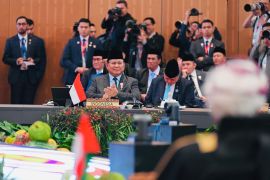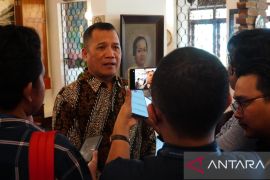"We encourage leaders to empower women," Chairman of the Indonesian Chamber of Commerce and Industry, Rosan Perkasa Roeslani, said during the opening of Leaders Summit in Jakarta on Tuesday.
He stated that womens empowerment could be carried out by overcoming a number of obstacles of various aspects that can hinder women from taking leadership positions.
Roeslani reported the results of IORA Business Summit which was held on Monday (March 6) and followed by representatives of IORA member states.
The Business Summit consisted of three sessions. The first session was related to the empowerment of small and medium-sized enterprises in the Indian Ocean region, the second session was concerning womens empowerment, and the third session was regarding an increase in tourism sector and connectivity through infrastructure improvements.
Meanwhile, the digital innovation in the postmodern era has produced a device which was considered to be very helpful to empower women globally, including in the region of IORA.
The use of digital innovation to empower women was highlighted in the second session of the Business Summit.
A speaker from Malaysia, Chief Executive Officer (CEO) of CIMB Group Tengku Dato, Sri Zafrul Aziz, noted that only about 46 percent of women in the Southeast Asia region have bank accounts and only a few have access to bank loans.
Meanwhile, the Australian CEO of Austrade, Stephanie Fahey, pointed out that by using digital innovation, which is often referred to the fourth industrial revolution, citizens also can transfer funds in the network by using a mobile phone without having a bank account.
"The development of future trans-digital could also create opportunities for women (to improve their welfare)," she noted.
She also underlined that educational aspect is a very important issue, especially to encourage women to study in the fields of science, technology, engineering, and math.
She stated that Australia has a policy to encourage women to be more engaged in studying math and science.
Meanwhile, the President of the Black Business Council of South Africa, Danisa Baloyi, agreed that digital innovation, like the development of mobile technology, could change the fate of many citizens.
"If you look at Africa, telephone sophistication has changed the lives of many people, which allows people to communicate and transact in many rural areas," she pointed out.
She also urged various parties to do more to empower women, especially to empower multitasking skills that many women have.(*)
Editor: Heru Purwanto
Copyright © ANTARA 2017











